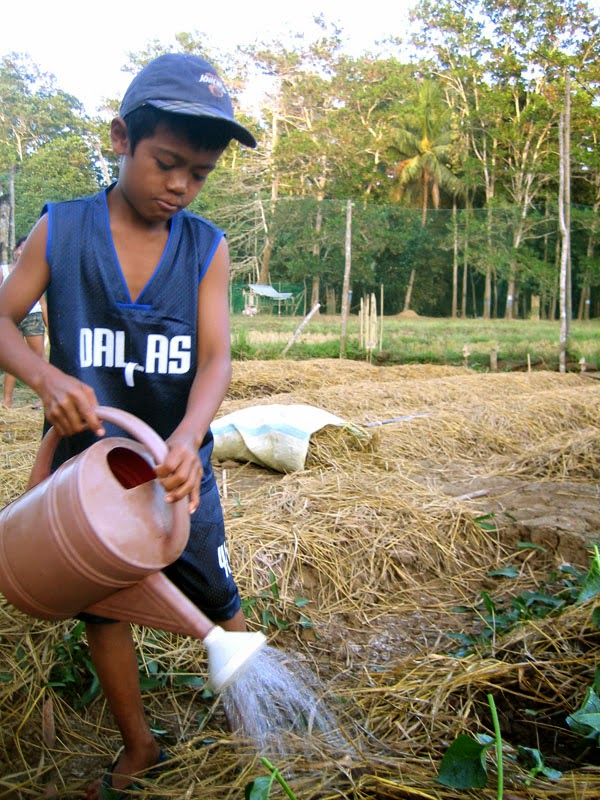 This is Jun, our farm manager, showing me the latest rice crop that we have just harvested.
This is Jun, our farm manager, showing me the latest rice crop that we have just harvested.On the farm we have our own rice fields that allow us to grow our own rice. Most of the rice we eat here comes from what we grow. There is a three-month dry season when rice won’t grow, so we use that time to grow other crops in the fields. We are not yet 100% fully sustainable but are moving well towards that with most of our foods and we plan to keep increasing that in the future.
The farm is organic for more healthy produce. Here you can see the rice still on the plant, which then needs to be threshed to separate it from the plant. The plant stems become a straw for the animals. The rice then needs to be ground to remove its hull; the hull can be used for cooking on or ground to powder as an organic animal feed. Once the rice is removed from its hull, it is ready for cooking and looks like it does in the shops.
What is left of the plant left in the field will gradually rot down and help fertilise the next crop, supported by lots of our own compost and animal manure which will be added and ploughed in before the next crop is planted.











